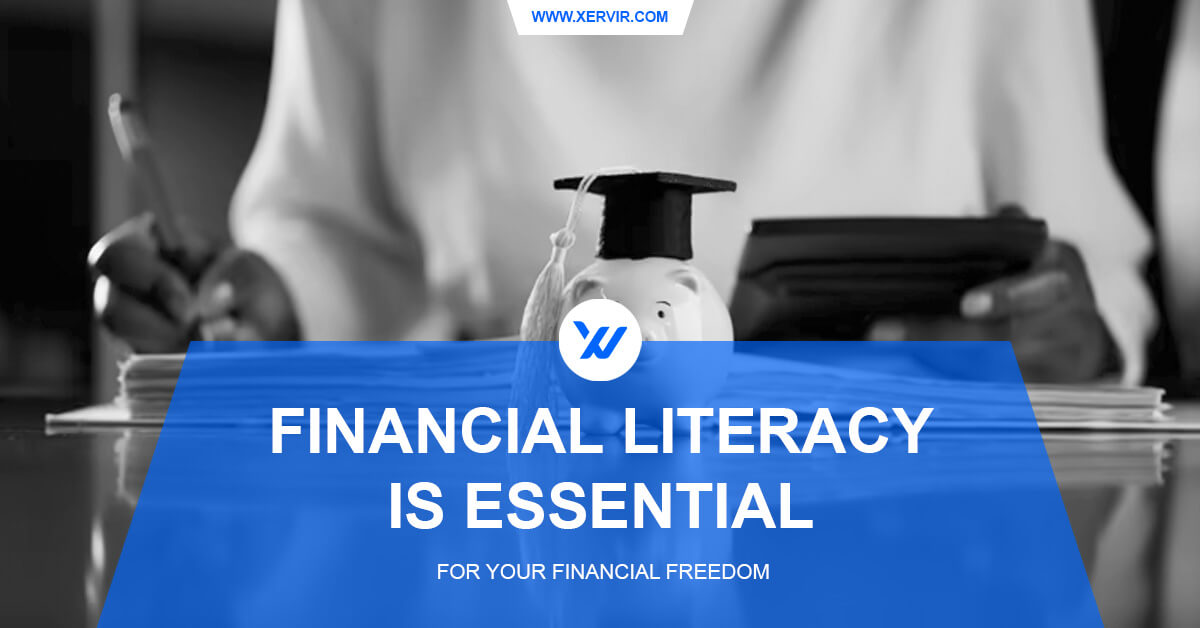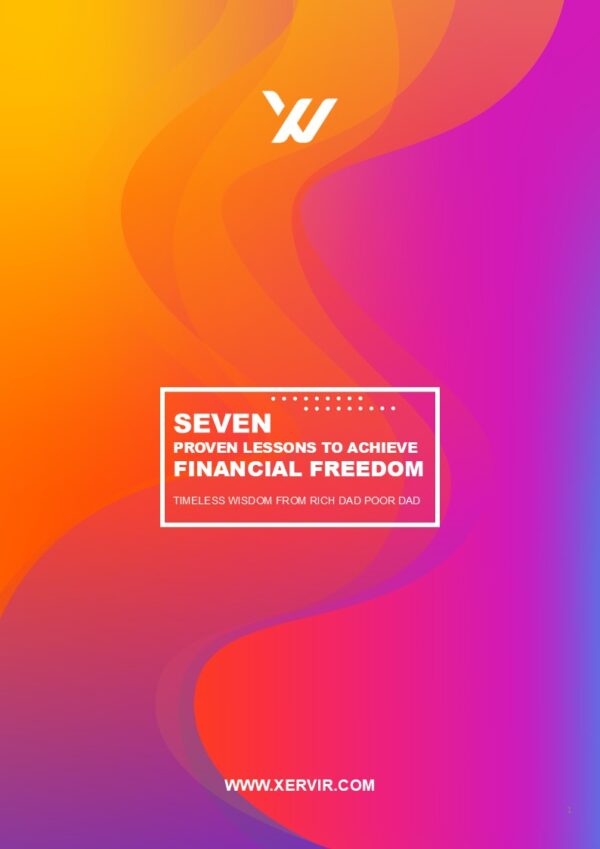Many people grow up without ever learning essential lessons about money management. Schools teach us algebra, history, and science, yet few offer practical lessons on managing, investing, and growing money. The result? Adults who struggle financially, burdened by debt, unsure how to invest, and constantly worried about money.
This is exactly why financial literacy is critical. Financial literacy is understanding how money works, how to manage it wisely, and how to use it to secure your financial future.
Why Financial Literacy Matters
Without financial literacy, even highly educated individuals can make poor financial choices, leading to stress and insecurity. Understanding basic financial principles—like budgeting, saving, investing, debt management, and financial planning—is critical for achieving independence and security.
The Cost of Financial Illiteracy
People who lack financial literacy often:
- Live paycheck-to-paycheck.
- Accumulate unnecessary debt.
- Fail to plan adequately for retirement.
- Make risky or uninformed investment decisions.
- Struggle to cope with financial emergencies.
Teaching financial literacy helps individuals overcome these common problems by providing them with the skills needed to make informed decisions and take control of their financial futures.
EXAMPLE Changed by Financial Literacy
Financial education has the power to drastically change lives. Here are real-world examples:
Jasmine, From Debt-Ridden to Financially Free
Jasmine, a marketing executive, struggled with massive credit card debt despite her high income. After taking a financial literacy course, she learned budgeting techniques and effective debt management strategies. Within two years, she eliminated her debt and began investing. Today, Jasmine has built a diversified portfolio and no longer fears financial emergencies.
Alex and Maria, Retired Early
Alex and Maria were typical earners, unaware of how to invest or save effectively for retirement. After learning financial literacy basics, they drastically changed their financial habits. They invested systematically and learned to live within their means. By the age of 45, they accumulated enough wealth to retire comfortably, enjoying their passions without financial stress.
Practical Financial Literacy Tips You Can Apply
To start improving your financial literacy today, consider these practical tips:
1. Understand Budgeting
Budgeting is foundational. Create a clear monthly budget that tracks your income, expenses, and savings. It helps you spend wisely, avoid debt, and build savings.
2. Master Debt Management
Learn the difference between good debt (e.g., mortgage, educational loans) and bad debt (high-interest credit cards, unnecessary purchases). Create a clear plan to eliminate harmful debt quickly.
3. Save and Invest Early
The earlier you start saving and investing, the more your money grows thanks to compound interest. Even small amounts consistently invested can grow significantly over time.
4. Emergency Fund
Always maintain an emergency fund covering at least three to six months of living expenses. This protects you from unexpected financial crises and prevents unnecessary debt.
5. Learn Investment Basics
Understand different types of investments like stocks, bonds, mutual funds, and real estate. Knowing basic investment concepts can help you grow your money and secure your financial future.
6. Plan for Retirement
Begin retirement planning early. Use tax-advantaged accounts like IRAs or employer-sponsored retirement plans. Small, regular contributions can secure a comfortable retirement.
Overcoming Common Obstacles to Financial Literacy
Financial literacy might seem daunting at first, but it doesn’t have to be. Here’s how you can overcome common challenges:
Overcoming Fear
Many fear finances due to complexity or past mistakes. Overcome this by starting with simple topics and gradually advancing your knowledge. Every step forward reduces fear.
Addressing Procrastination
Don’t wait for the “perfect” time. Commit to learning now. Start small with daily reading or short financial podcasts.
Eliminating Confusion
Financial jargon can seem overwhelming. Look for resources that explain financial concepts in simple language. Clarity builds confidence.
Start Your Financial Literacy Journey Today
If you’re ready to empower yourself financially, the best time to start is now. Educating yourself on financial basics is easier than ever, with abundant resources available.
To fast-track your financial literacy journey, consider checking out SEVEN PROVEN LESSONS TO ACHIEVE FINANCIAL FREEDOM ebook that breaks down key financial concepts clearly and concisely. This ebook offers practical finacial advice, and helpful insights to improve your financial understanding quickly and effectively:
SEVEN PROVEN LESSONS TO ACHIEVE FINANCIAL FREEDOM
Robert Kiyosaki the author of the book Rich Dad Poor Dad says that earning money is a science that is not taught in schools. Schools teach us how to become an employee and build a career. If you are coming from a middle-class family like I do, then there’s a high probability that your parents taught you how to become poor, and this is not because your parents don’t love you or don’t want you to be successful, it’s simply because they themselves are not educated on this topic. They consumed expired information and when you were born, they passed it on to you. Kiyosaki says poverty is like genetics, it passes on from one generation to another.
Rich Dad Poor Dad is one of those Finance books that I wish I had read when I was 14 or 15 years old. I strongly recommend reading the book or reading this e-book because I will be doing a detailed summary of all seven key lessons.
Final Thoughts
Financial literacy isn’t just beneficial; it’s essential. It provides the tools and knowledge necessary for a secure, stable, and stress-free financial future. By investing in your financial education, you empower yourself to make informed decisions, avoid common mistakes, and achieve financial freedom.
Take charge of your financial future today—because financial literacy isn’t just about money, it’s about freedom, security, and living life on your terms.
Read also: The Hard Truth: Your Job is Keeping You Poor – Quit the Rat Race


